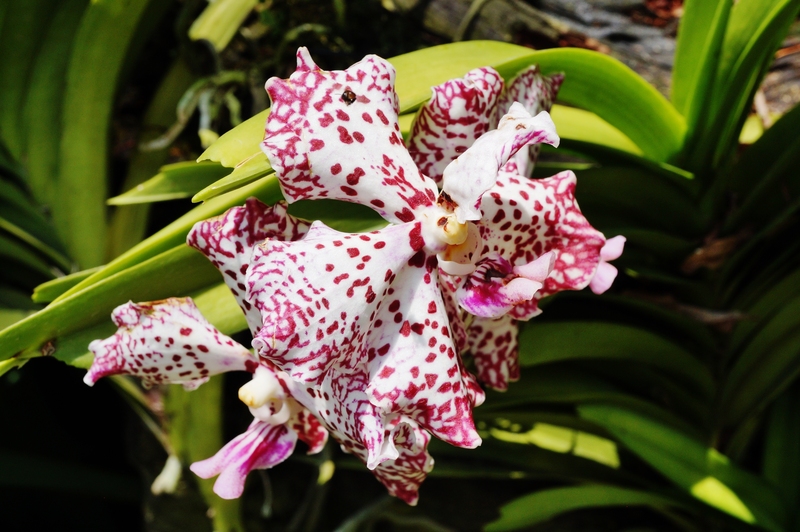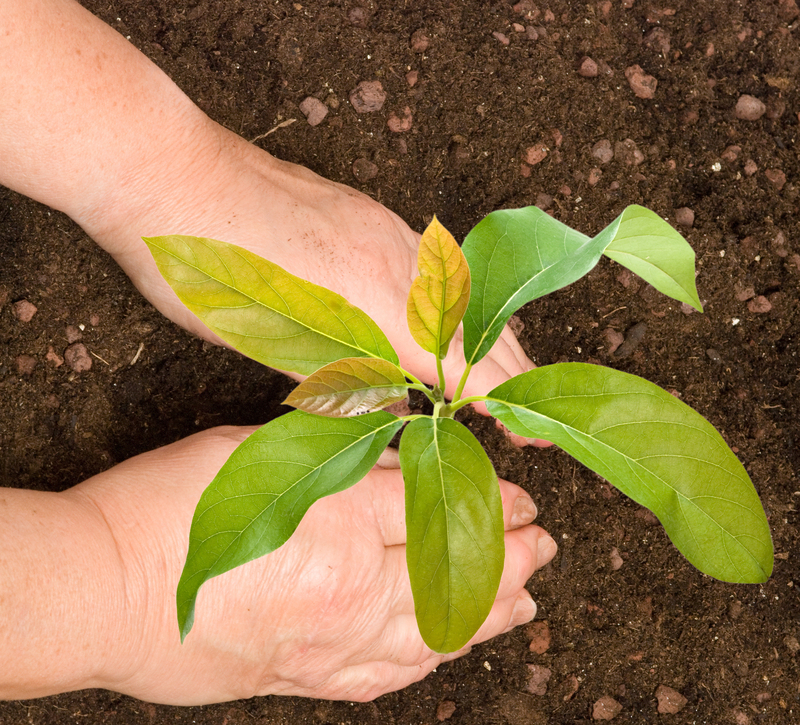From Peels and Scraps to Lush Gardens: The Soil Transformation
Posted on 22/08/2025
From Peels and Scraps to Lush Gardens: The Soil Transformation
What if the leftovers from your kitchen--the banana peels, eggshells, and vegetable trimmings--could be the secret ingredient for a flourishing, vibrant garden? The journey from food scraps to fertile soil is more than just a sustainable trend; it's a practical transformation that can help anyone nurture their garden while reducing environmental waste. Welcome to the world of composting and soil transformation, where kitchen waste evolves into nutrient-rich earth for your backyard heavens.
The Science of Soil Transformation: Turning Waste into Wonder
Before we dig into the practicalities, let's explore what happens when organic scraps become garden gold. The transformation process is known as composting, and it relies on microbial magic. Here's how it works:
- Microorganisms such as bacteria and fungi begin to break down organic matter.
- The decaying material heats up, speeding the decomposition process.
- Insects and worms join the party, further fragmenting the materials.
- After a few months, what's left is rich, dark, crumbly compost--the perfect soil amendment.
This transformation enriches the soil, boosts plant health, and closes the loop in our food systems. Composting serves as a bridge between kitchen waste and lush, productive gardens.
Why Composting Matters for Gardens and the Environment
Composting does more than fertilize your plants. Here are some reasons to embrace the journey from peels and scraps to lush gardens:
- Reduces landfill waste: Composting diverts up to 30% of household waste from landfills.
- Reduces greenhouse gases: Organic waste in landfills produces methane, a potent greenhouse gas. Composting prevents this.
- Improves soil health: Compost enriches the soil with nutrients, improves texture, and increases water retention.
- Suppresses plant diseases and pests: Healthy soil means stronger, more resilient plants.
- Saves money on commercial fertilizers and reduces your garden's chemical footprint.

The Essentials: What to Compost for Your Garden's Transformation
Not all scraps are equal. For a thriving compost pile, balance is key. Composting works best with a healthy mixture of carbon-rich "browns" and nitrogen-rich "greens."
Carbon-Rich Browns
- Dried leaves
- Straw and hay
- Shredded newspaper or cardboard
- Sawdust (from untreated wood)
Nitrogen-Rich Greens
- Fruit peels (like banana and orange peels)
- Vegetable scraps (carrot tops, lettuce, etc.)
- Coffee grounds and tea bags
- Eggshells
- Grass clippings
Avoid adding meat, dairy, oils, or diseased plant materials to your compost. These can attract pests or slow down the decomposition process, jeopardizing your soil transformation journey.
Building Your Compost Pile: Step-by-Step to Rich Soil
Let's walk through how to convert those peels and scraps into rich, dark soil:
1. Find the Right Spot
Choose a location with good drainage and access to partial sunlight. This encourages hearty microbial activity, essential for composting.
2. Layer Like a Pro
Start with a layer of browns at the bottom (twigs, straw), then alternate with greens (food scraps, fresh grass). Each new addition should be covered with browns to minimize odor and pests.
3. Maintain the Balance
- Keep the pile moist but not soggy--like a wrung-out sponge.
- Aim for a carbon (brown) to nitrogen (green) ratio of about 3:1.
- Mix or turn your pile every 1-2 weeks to aerate and encourage decomposition.
4. Watch for Changes
The compost should heat up, then cool as it matures. It's ready when it's dark, crumbly, and earthy-smelling, usually in 2-6 months depending on your climate and the materials used.
Vermicomposting: The Power of Worms in Soil Transformation
For apartment dwellers or those short on yard space, vermicomposting is a game-changer. This method uses red wiggler worms to break down food waste into "worm castings" or vermicompost--an incredibly potent fertilizer.
How Does Vermicomposting Work?
- Set up a small bin with bedding (shredded newspaper, coconut coir).
- Add a handful of red worms and start feeding them small amounts of kitchen scraps.
- Worms convert these into castings in a few months, perfect for indoor or balcony gardens.
Vermicomposting produces minimal odor and can be managed year-round indoors--making it ideal for anyone who wants to experience the soil transformation from peels and scraps without a large compost pile.
The Benefits: How Compost Creates Lush Gardens
When you add compost to your garden, you aren't just disposing of waste; you're kickstarting a revolution beneath the soil. Here's how composted organic scraps transform your garden:
1. Enriched Soil Structure
Compost improves the texture and structure of soil, making it easier for plant roots to grow and spread. Clay soils become less dense, sandy soils retain water better, and all soil types benefit from added organic matter.
2. Expanded Nutrient Availability
Compost slowly releases a wide range of essential nutrients, including nitrogen, phosphorus, and potassium. This provides steady nourishment for vegetables, fruits, flowers, and trees.
3. Improved Water Retention
Soil amended with compost holds water more efficiently, reducing the need for constant irrigation--ideal for drought-prone areas.
4. Enhanced Microbial Life
Healthy, living soil is a haven for microorganisms, which break down nutrients for plants and protect against disease and pests. Compost supercharges this invisible ecosystem.
Beyond Backyard Gardening: Compost's Bigger Impact
The transformation of scraps into soil isn't just for home gardeners. Cities, schools, and farms are joining the movement, recognizing how composting reduces waste, saves money, and builds healthier communities.
Community Composting Initiatives
- Urban community gardens use shared compost piles to provide affordable food and green spaces.
- Schools teach children about waste reduction and biology through hands-on composting projects.
- Farmers use large-scale composting to improve soil fertility and reduce reliance on chemical inputs.
How You Can Participate
Even if you don't garden, you can still contribute by:
- Collecting food scraps for neighborhood or municipal composting programs.
- Donating compostable waste to local gardens or farms.
- Advocating for composting at community events and through social media.
Troubleshooting Your Compost: Common Issues and Solutions
Is your compost pile stalling out or smelling off? Here's how to fix typical problems on the path from scraps to lush, garden-ready soil:
- Compost smells bad? Too many greens or food scraps can cause odor. Add more browns and turn the pile to aerate.
- Compost is too dry? Add water (and maybe some more greens) to get that sponge-like consistency.
- Pile won't heat up? Check if it's too small. Aim for at least 3x3 feet of material. Add more greens for nitrogen and turn regularly.
- Presence of pests? Avoid adding meat, dairy, and oily foods. Always bury kitchen scraps in the center of the pile, covered well by browns.

FAQs: From Peels and Scraps to Lush Gardens
How long does it take kitchen scraps to turn into usable compost?
Depending on your climate, method, and materials, compost takes anywhere from 2 months (hot managed piles) to 6-12 months (cool or passive piles).
Can compost be used for all types of plants?
Yes! Compost benefits vegetables, flowers, fruit trees, and even indoor plants, improving soil health and nutrient content for all.
What is the difference between compost and mulch?
Compost is made from decomposed organic material and enriches the soil directly. Mulch (like straw, wood chips, or leaves) covers the soil surface to retain moisture and suppress weeds, gradually decomposing over time.
Sustainable Gardening: The Future Starts with Your Scraps
The journey from peels and scraps to lush gardens is one of nature's most remarkable transformations. By embracing composting, you not only reduce household waste but also create living, vibrant soil that powers your plants and protects the planet.
Start small--save your peels, learn the method, and watch as waste turns to wonder. Composting is a powerful connection to the natural cycles that sustain all life. Your soil will thank you, your garden will thrive, and the environment will benefit--all from the simple, sustainable act of giving your scraps a second life.
Ready to transform your kitchen scraps into garden gold?
- Begin collecting food waste today.
- Research local or backyard composting options.
- Share your composting journey with your community to inspire others.
The transformation from peels and scraps to lush gardens starts at your cutting board and blossoms in your backyard. Your soil can be the richest, most nurturing place--all with a little help from nature and your everyday food scraps.
Latest Posts
Unlock the mysteries of orchid nurturing
Zen Garden Aesthetics for an Idyllic and Peaceful Space
The Art of Hedge Trimming: Discover Diverse Shapes and Methods

